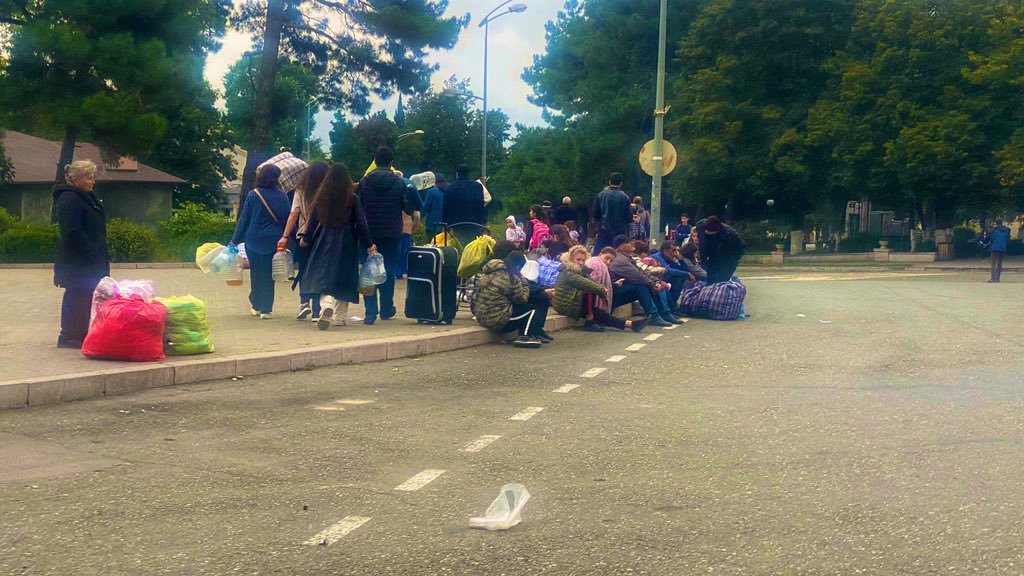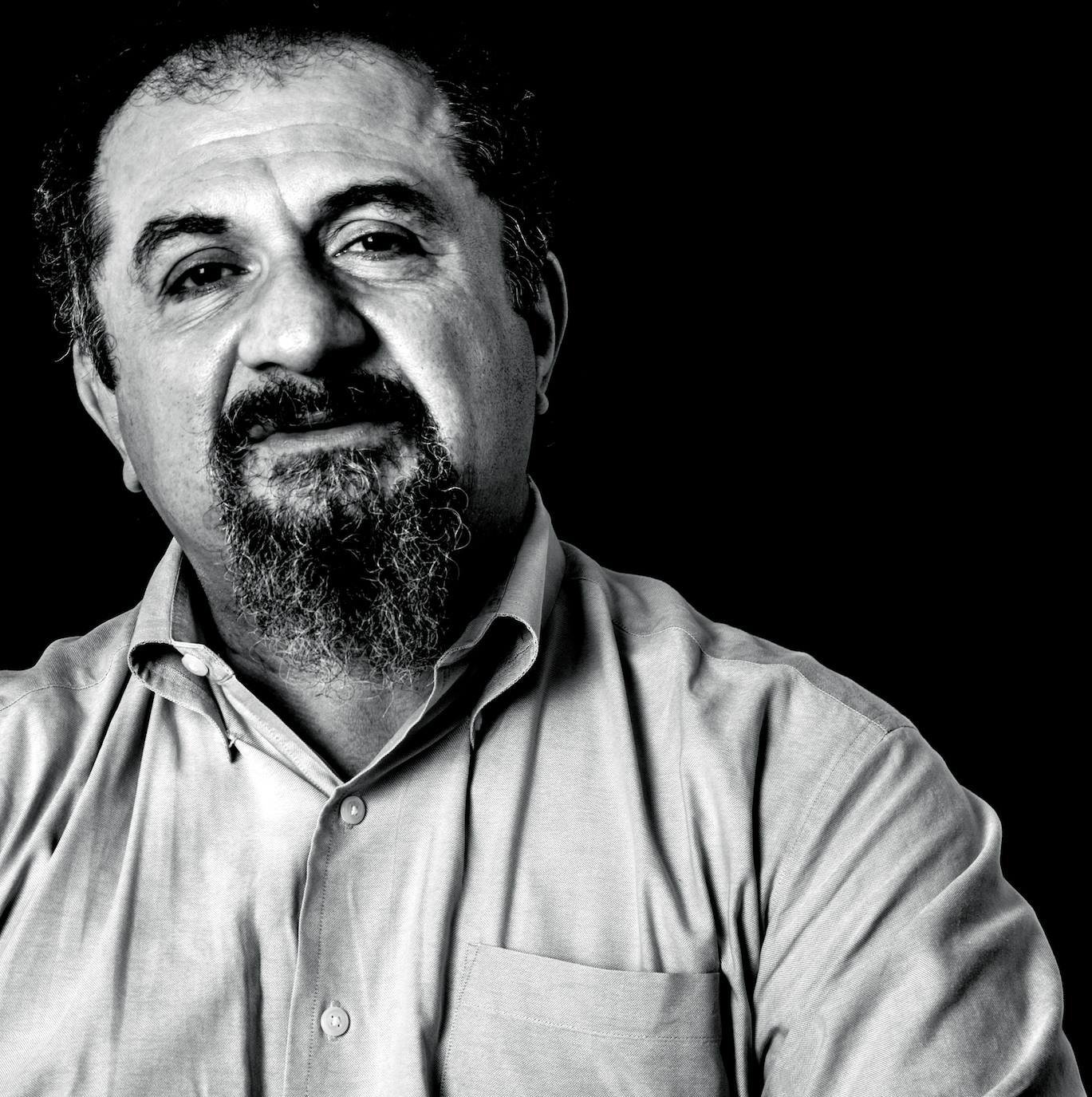
When you start an opinion piece about the current situation in Armenia by mixing a couple of American sports metaphors, there is a lot of explaining to do. The first metaphor represents the need for divine intervention in the face of long odds. The second illustrates the complexity of any potential way out of this morass. Sitting in Yerevan, I feel desperate and confused by the situation, like most Armenians. We are blaming everything and everyone, often with contradictions in the same thought, calling for heads to roll and coming up with conspiracy theories that would make Q-Anon cringe. This is what happens when we’re short on facts and bad at statecraft. Rather than pouncing on the villain of the day (literally or metaphorically), let’s consider potential solutions based on facts, assumptions and inferences.
Several failures have brought us to this reality. We are woefully outgunned against our adversaries. We picked the wrong friends, though at the time it may not have been obvious. Underlying both is a lack of statesmanship and gross ineptitude in governance.
I don’t dwell on statesmanship to blame the victim, which often comes on the heels of defeat. Yet we are inexperienced in this critical skill as a result of going through long stretches of history without full sovereignty and not knowing what to do with it when we have it. Unfortunately, within this reality we have honed another skill, which is to undermine the state.
In the most recent iteration of our would-be statehood, no one has undermined the state more than those in charge of it. Their insatiable loot of the country’s meager resources, both natural and created through economic activity, has led to our current impoverished state, where poorly armed and nourished boys or contracted servicemen are left to confront their adversaries with very little more than their boundless courage.
Yet those in charge of the state are not alone in undermining it. In the last few days, I have met so many loving parents who desperately want to get their fighting age sons out of the country considering the imminent danger, most likely in the form of an attack on Syunik. They don’t want their sons to die for any individual in government, as if those in power were medieval warlords. The idea of dying for the country through the agency of the state escapes them totally, and who can blame them.
Despite this bleak backdrop, all may not be lost. In the past, we made defining gains during other stretches of weakness and subjugation. In the fourth and fifth centuries, we shaped our identity when we adopted Christianity, invented our alphabet and consolidated our unique identity, all under Roman and Persian rule.
If we want Armenia to emerge from this grim state with security, peace and prosperity, here are some thoughts.
Security: The last three years are proof that Armenia cannot rely on others for her security. As statehood matures and takes hold, Armenia should adopt the Garrison State as its model and primary national goal. Getting the population to buy into this concept will be difficult, yet if recent history and the current chaos are not convincing enough, then Armenia will never attain real national security. The hardware for this level of militarization is costly and will require a strong economy to build up the required wealth. Recent economic trends are hopeful.
Economy and wealth: According to the International Monetary Fund’s (IMF) 2023 rankings, Armenia’s Gross Domestic Per Capita Income (PCI) is now higher than those of three of her neighbors: Georgia, Azerbaijan and Iran. Real economic growth in recent years is the primary driver of this significant rise in ranking. Part of it can be attributed to the appreciation of the Armenian dram relative to the U.S. dollar and other currencies, as Russians and others have brought enormous amounts of hard currency into the country while fleeing after Russia’s invasion of Ukraine. The IMF’s PCI matric adjusted for Purchasing Power Parity (PPP) captures this effect. With this adjustment, Georgia leaps slightly ahead of Armenia, but Armenia remains in a tie with Iran and well ahead of Azerbaijan.
Considering the countless headwinds with which the Armenia economy must contend, this is a remarkable achievement, although not surprising if we subscribe to the notion of an inherent Armenian acumen for wealth creation. Though many serious obstacles remain, crippling corruption, one huge element that has weighed on the economy, has reduced significantly in the last five years. The government should do all it can to maintain this trajectory by continuing and even intensifying its fight against corruption. Reducing corruption provides better access to the economy for entrepreneurs, who no longer must contend with the obstacles created by the oligarchs. More importantly, it provides tax revenue flows into government coffers, as corrupt tax collectors no longer line their pockets instead of the state treasury. In addition to fighting corruption, a democratic system is vital for overall economic growth. Apart from some small states and offshore tax havens, the wealthiest countries in the world are liberal democracies.
Developing statehood through democratic means: Since the fall of Artsakh, street demonstrations in Yerevan (though their sizes are surprisingly small) and senseless arrests have been daily occurrences. Public dissatisfaction is on the rise, but many people continue to support the regime. There are constant rumors that politicians associated with former regimes or external interests are plotting to topple the government and take it over. While they are just rumors, they may also be true. We may never know, because there is so little reliable information. The current government’s shortcomings are painfully obvious, yet it is vital that changes in government occur through democratic means in order to promote the development of statehood. No messiah-like figure or organization has the wherewithal to appear and fix everything with the flip of a switch. The next parliamentary election must take place before February 2026. Any change brought about by force will be a terrible blow to the development of statehood and the rule of law.
More reliable neighbors and partners: It is overly optimistic, and even foolish, to think that a small country like Armenia surrounded by hostile neighbors can go it alone. Armenia must look for new neighbors and partners. With Russia’s complicity in losing Artsakh, Armenia may be freer to look for partners elsewhere, mainly in Europe and the United States. Even at the price of sacrificing economic and political independence, real alliances, particularly with European countries, are the best path forward. Georgia’s overtures to Europe offer a contiguous path for Armenia. This may be the silver lining of losing Artsakh and rendering Russia less relevant.
This is all bleak and upsetting, especially for those who genuinely and fairly want immediate change in government at all costs. Yet these steps may offer a more reasonable path forward. It’s a terribly long shot.



Interesting thoughts! Some I agree with, some others I disagree. We can keep arguing over who is more responsible for this indefinitely. After all, Armenians love to use the word “davachan”. Instead, I wish we could think a bit about individual responsibility. What have I done? It’s a good question. I could have moved to Armenia. I could have even moved to Artsakh and helped make its prewar population of barely 150 thousand to half a million which would change a lot on the ground. I could have purchased at least 500 dollars of Armenian goods a year to help Armenian economy. I could have opened a bank account in Armenia and transfer just a quarter of my savings there to help the country. The list goes on and if we did more of these things maybe we would have been in a different situation now.
Sadly, this will turn yet into another date on our calendars that we need to commemorate or maybe demonstrate in front of this or that embassy. We simply don’t learn from our mistakes. We don’t know how to use our victories and we don’t know how to learn from our failures and turn them into successes. Anything lost can be regained. Power is so fluid. It constantly changes hands. Azerbaijans oil is not going to last forever. Oil itself is nearing its peak demand and might become a far less valuable commodity in a decade or two. Turkey has its own ticking bomb which is called Kurds. So many things can change in the next decade or two just like it changed from early 90s when Armenians were the triumphant side. The question for Armenians is are we going to be ready for those changes? Will we have a modern and strong army backed by a modern defense industry and 5 million population or we will be a poor nation of 2 million that is begging Russia or India for some weapons. It’s really up to us.